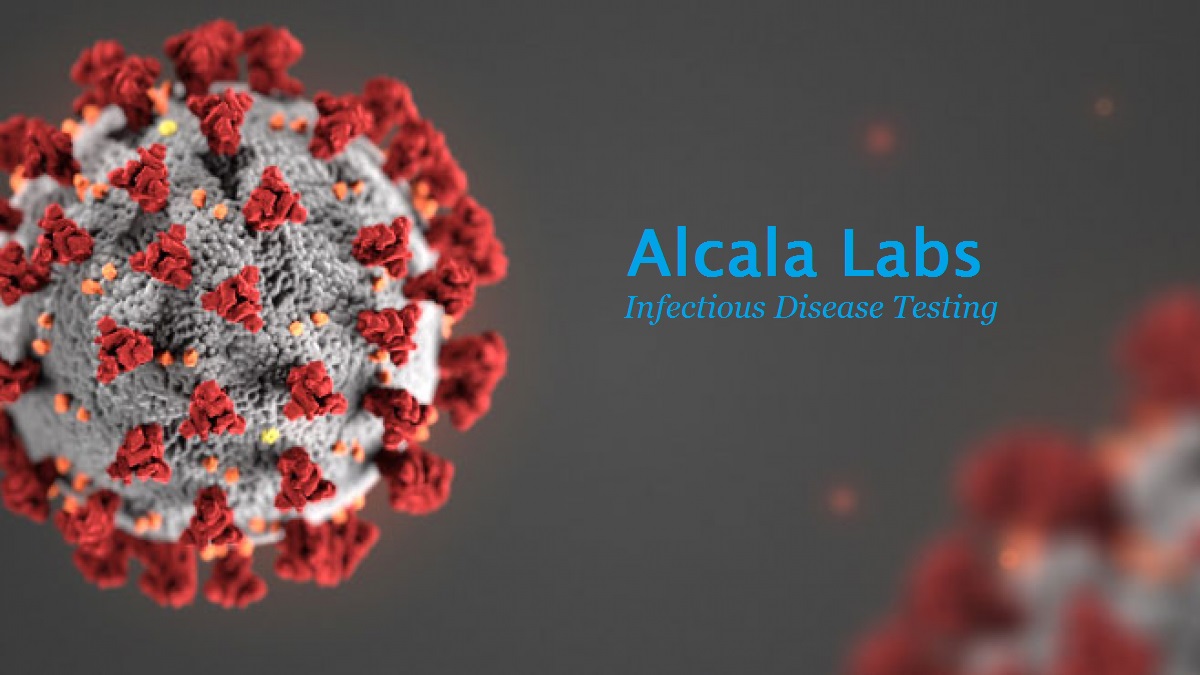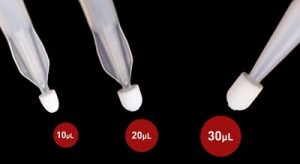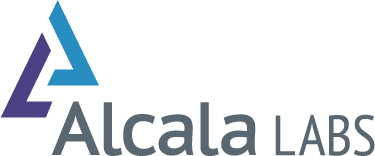March 17th, 2021
SAN DIEGO, Calif.—
Yale School of Public Health approved Alcala Labs as a designated Lab under EUA 202097 S007. SalivaDirect™ is a real-time reverse transcription polymerase chain reaction (rRT-PCR) test intended for the qualitative detection of nucleic acid from SARSCoV-2 in saliva collected without preservatives in a sterile container from individuals suspected of COVID-19 by their healthcare provider. Testing is limited to laboratories designated by the Yale School of Public Health, Department of Epidemiology of Microbial Diseases, that includes the Clinical Molecular Diagnostics Laboratory, Department of Pathology, Yale School of Medicine, located at 310 Cedar St., New Haven, CT 06510, that are also certified under the Clinical Laboratory Improvement Amendments of 1988 (CLIA), 42 U.S.C. §263a and meet the requirements to perform high complexity tests.
Results are for the detection and identification of SARS-CoV-2 RNA. The SARS-CoV-2 RNA is generally detectable in saliva specimens during the acute phase of infection. Positive results are indicative of the presence of SARS-CoV-2 RNA. Clinical correlation with patient history and other diagnostic information is necessary to determine patient infection status. Positive results do not rule out bacterial infection or co-infection with other viruses. The agent detected may not be the definite cause of disease. Laboratories within the United States and its territories are required to report all results to the appropriate public health authorities.
Negative results do not preclude SARS-CoV-2 infection and should not be used as the sole basis for patient management decisions. Negative results must be combined with clinical observations, patient history, and epidemiological information. Negative results for SARS-CoV-2 RNA from saliva should be confirmed by testing of an alternative specimen type if clinically indicated.
SalivaDirect™ is intended for use by qualified and trained clinical laboratory personnel specifically instructed and trained in the techniques of RT-qPCR and in vitro diagnostic procedures. The assay is only for use under the Food and Drug Administration’s Emergency Use Authorization.
The COVID-19 virus RNA in saliva remains stable at room temperature for at least 7 days. If cold storage is available: to mitigate fluctuations in temperatures, samples can also be stored at 2-8°C until sample transport or processing (up to 7 days) or at -80°C for longer term storage.
February 24th, 2021
SAN DIEGO, Calif.—
The CDC and the California Department of Public Health have recently updated their COVID-19 quarantine recommendations for persons who have been fully vaccinated. OCHCA will update its health order in accordance with this guidance:
COVID-19-vaccinated persons with exposure to someone with suspected or confirmed COVID-19 are not required to quarantine if they meet all of the following criteria:
· Are fully vaccinated, having received either both doses of a two-dose series ≥2 weeks prior to COVID-19 exposure or one dose of a single-dose vaccine ≥2 weeks prior to COVID-19 exposure
· Are within 90 days following receipt of the last dose in the series, AND
· Have remained asymptomatic since the current COVID-19 exposure
Persons who do not meet all 3 of the above criteria should continue to follow current quarantine guidance after exposure to someone with suspected or confirmed COVID-19.
Fully vaccinated persons who do not quarantine should still:
· Self-monitor for symptoms of COVID-19 for 14 days following an exposure.
· Seek clinical evaluation if they develop symptoms, including SARS-CoV-2 testing if indicated.
· Respond to calls or texts from OCHCA to assist in contact tracing efforts if requested to do so.
These criteria could also be applied when considering work restrictions for fully vaccinated healthcare personnel with higher-risk exposures, including household exposures, as a strategy to alleviate staffing shortages; however, if no staffing shortages exist, healthcare workers should still quarantine after higher-risk exposures until further data is available about the effectiveness of vaccination in reducing transmissibility. Of note, exposed healthcare personnel would not be required to quarantine outside of work.
Fully vaccinated inpatients and residents in healthcare settings should continue to quarantine according to guidance for healthcare settings following an exposure to someone with suspected or confirmed COVID-19; outpatients should be cared for using appropriate Transmission-Based Precautions.
All vaccinated persons must continue to adhere to social distancing and masking measures in the community and job-specific PPE in work site settings.
Testing of Asymptomatic Persons Who are Fully Vaccinated:
The CDC and CDPH have not modified their recommendations for laboratory screening of asymptomatic persons who are fully vaccinated. OCHCA continues to strongly recommend routine screening of asymptomatic staff and residents of nursing homes.
In other settings where routine screening is being performed, such as schools, hospitals, and workplaces, consideration can be given to focusing screening on those who have not completed a vaccine series.
Fully-vaccinated persons who develop symptoms consistent with COVID-19 should be tested and isolated pending results.
May 18th, 2020
SAN DIEGO, Calif.—
Alcala Labs is offering SARS-CoV-2 (COVID-19) testing to cover viral detection by COVID-19 RNA testing and antibody tests for IgG and IgM. Effectively covering the full spectrum of COVID-19 infectious disease progression is crucial in identifying affected individuals at different stages of a possible exposure.
Additionally, differential testing and determination of co-infections can be tested to rule out 20 other possible respiratory viral or bacterial pathogens.

July 18th, 2018
TORRANCE, Calif.— (BUSINESS WIRE) — Neoteryx LLC, announced that it will supply its Volumetric Absorptive Microsampling (VAMS™) technology, in the form of the Mitra® microsampling device, to Alcala Labs of San Diego for a more efficacious, streamlined approach to monitor patients in recovery centers throughout the United States. By incorporating VAMS specimen collection and transportation technology into its CleanAssure™ clinical convenience kits and testing menu, Alcala Labs is the first to commercialize an offering to addiction recovery centers that analyzes a volumetrically accurate dried blood microsample collected from a simple finger prick to test for alcohol and opioids.
Neoteryx’s Mitra Microsampler Specimen Collection Device requires minimal training to use effectively. Patients simply utilize Alcala Lab’s CleanAssure method of sample collection, which involves a simple finger prick, to collect the blood sample onto the VAMS tip and ship directly to Alcala Labs, who will provide testing and results.
“We are thrilled that Alcala Labs has elected to use our specimen collection and transportation technology to streamline their testing process for patients in recovery. We recognize that the road to recovery is full of obstacles and monitoring should be an effortless process,” said Fasha Mahjoor, Neoteryx CEO. “Our dry blood sampling technology is superior to the industry’s traditional use of urine samples, which can be susceptible to tampering and ultimately alter patient results.”
Since this novel sample collection process requires no special training, facility operators are able to collect blood samples on the spot, without their patients being burdened by (and in many cases refusing) travel to a licensed clinic for sample collection. In addition, patients can still receive testing, once they are cleared to return home and continue their rehabilitation. Facility operators can continue to track and monitor patients once they leave the rehabilitation center.
“We believe that transitioning from urine to dried blood samples will simplify the process for patients and ease the burden for recovery centers,” said Matt Rifat, Alcala Labs President. “We are pleased that microsampling has become a viable option, and Neoteryx’s VAMS technology presented us with the best available solution.”
About Neoteryx:
Neoteryx LLC, based in Southern California, is focused on delivering simple, quantitative and automatable microsampling solutions for biological samples. Our class I exempt medical device, The Mitra Microsampler facilitates convenient specimen collection and transportation of blood and other biological fluids to improve animal and patient welfare, reduce laboratory costs and enable new models of care. Neoteryx’s customers work to advance pharmaceutical development, personalized medicine, biotechnology research and clinical diagnostics. For more information on Neoteryx, visit www.neoteryx.com or follow @neoteryx on Twitter.
The Mitra Microsampler class I medical device is for direct specimen collection and transportation of blood and other biological fluids. It is not specific to any clinical test, and is not for use in diagnostic procedures. Use of the Mitra Microsampler in Laboratory Developed Tests (LDTs) requires further processing including the establishment of performance characteristics and successful validation by the laboratory in a manner consistent with CLIA requirements.
July 3rd, 2018
TORRANCE, Calif. — Neoteryx LLC, announced today the expansion of its patent-pending Mitra® Microsampling portfolio to now include a 30 µL tip size. The Mitra microsampling device which comes in a 10 µL, 20 µL and now 30 µL holds and transports a precise volume of blood typically collected from a finger prick.

The newly released 30 µL tip size for Mitra microsamplers is the largest size available in the product suite. The average wicking time of samples is 4 seconds. Mitra samplers can be processed individually, or combined to increase analyte detection. A larger wicking volume (30 µL) means more analyte availability on tip.
“The 30 µL microsampling device is designed for collection and storage of dried blood, allowing for analysis of small and large molecules that have low analyte availability,” says Stuart Kushon, Chief Scientific Officer “This larger size will provide improved LC/MS sensitivity for small molecule assays requiring detection at low concentrations or when using older instrumentation. It also facilitates the splitting of samples to run multiple assays from the same specimen with a single extraction.”
Mitra Microsampling Devices allow for specimens to easily be collected anywhere, anytime, by almost anyone, with minimal training. The specimens can be sent straight to the lab via regular mail, avoiding the costs and logistical hassles associated with cold chain shipping.
Mitra microsampling devices have proven effective for sampling biological fluids containing a broad range of analytes. Dozens of published third-party manuscripts and commercialized laboratory-developed tests by CLIA certified labs illustrate how they utilize Mitra devices for their extraction and analysis of molecules such as immunosuppressants; HbA1c; anti-epileptics, small-molecule pharmaceuticals, biopharmaceuticals; DNA and RNA; vitamins; hormones; steroids and more.
About Neoteryx:
Neoteryx LLC, based in Southern California, is focused on delivering simple, quantitative and automatable microsampling solutions for biological samples. Our class I exempt medical device, The Mitra Microsampler, facilitates convenient specimen collection and transportation of blood and other biological fluids to improve animal and patient welfare, reduce laboratory costs and enable new models of care. Neoteryx’s customers work to advance pharmaceutical development, personalized medicine, biotechnology research and clinical diagnostics. For more information on Neoteryx, visit www.neoteryx.com or follow @neoteryx on Twitter.
The Mitra Microsampler class I medical device is for direct specimen collection and transportation of blood and other biological fluids. It is not specific to any clinical test, and is not for use in diagnostic procedures. Use of the Mitra Microsampler in Laboratory Developed Tests (LDTs) requires further processing including the establishment of performance characteristics and successful validation by the laboratory in a manner consistent with CLIA requirements.


